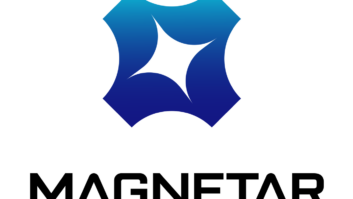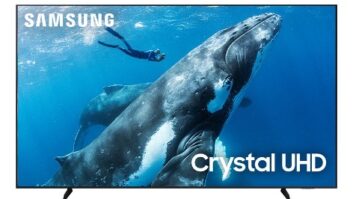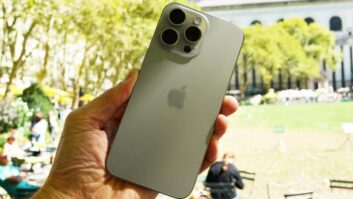New York – SoftBank’s planned acquisition of a 70 percent stake in Sprint will likely make Sprint a significantly stronger competitor in the U.S. and, in combination with T-Mobile’s planned acquisition of MetroPCS, offer consumers improved services at prices that will pressure the top two carriers, analysts said.
Sprint’s contribution to greater competition, however, will play out only if SoftBank and Sprint management don’t overstretch themselves in taking on another major project while they follow through on other major projects, warned Mike Roberts, principal analyst at Informa Telecoms & Media.
“While it’s true that Softbank’s investment could pay off by making Sprint significantly more competitive, it’s also true that there’s a huge risk that the deal will not go to plan and could weaken both companies at critical times,” he said, pointing to previously announced plans by SoftBank, Japan’s third largest carrier in revenue, to acquire rival Japan carrier eAccess for $2.3 billion in a bid to become Japan’s second-largest carrier.
Roberts warned that “adding a huge international deal on top of that increases the risk that management will be so stretched that neither deal will go to plan.”
In addition, Roberts said, “Sprint is in the middle of implementing two huge bets that are costing billions – its network modernization program and acquiring the iPhone – so this will be a third huge bet on top of those, which will make it hard to pull off and risks diverting attention from Network Vision and the iPhone.”
Roberts noted, however, that “the third bet does have the significant virtue of helping to pay for Sprint’s first two multi-billion dollar bets,” and he said SoftBank has expertise that will help Sprint as it deploys LTE as part of its network modernization.
“If Softbank and Sprint can pull this off, it could transform Sprint into a company that has the scale and financial resources to compete head-to-head with Verizon Wireless and AT&T, which dominate the U.S. mobile market with 33 percent and 31 percent market share, respectively, compared to Sprint with 17 percent and T-Mobile with 10 percent.” The deal would make Sprint part of a group with about 90 million subscribers in Japan and the U.S. compared to Sprint’s current 56 million subscribers in the second quarter, giving Sprint “the scale and financial firepower to compete more aggressively with Verizon Wireless and AT&T.”
The deal could also give Sprint the financial strength to develop a better strategy for carrier Clearwire, possibly by moving from majority ownership of Clearwire without full control to full ownership with full control to better exploit Clearwire’s spectrum, Roberts said. “Clearwire has a valuable portfolio of 2.5GHz spectrum, which has not been fully exploited due to a lack of investment, which can now change given Softbank will make $8 billion in capital available to Sprint as part of the deal, in addition to $12 billion which will go to Sprint’s shareholders,” Roberts said.
Clearwire, he noted, plans to move away from 4G WiMAX and launch faster 4G TD-LTE technology, which SoftBank launched in Japan earlier this year in the same 2.5GHz band. The use of the technology in both Japan and the U.S. “could generate momentum for the technology and economies of scale for equipment and devices,” he said.
For his part, IHS iSuppli analyst Dexter Thillien saw some risks, too. “The acquisition does contain some risks, especially as SoftBank paid a premium for the deal, with the two companies now accruing debts of over $25 billion,” he said.
If all goes well, however, $8 billion in new capital should accelerate Sprint’s plans to roll out its LTE network, having already pledged more than $20 billion to its Network Vision network-upgrade strategy and the addition of the iPhone to its product selection, Thillien said.
With the acquisition, slated to close in mid-2013, “Sprint could become a disruptive influence in the market,” Thillien continued. “This will mean a stronger competitor in the value market for T-Mobile as Sprint looks likely to continue with its unlimited data plans, while the similarities between the U.S. and Japanese markets should create economies of scale between the two carriers, reducing some of their costs in terms of network and handset purchasing.”
In addition, AT&T and Verizon have followed a premium strategy in wireless data because of their better networks, “but a resurgent Sprint with a strong network could put pressure on their wireless margins – their biggest growth driver – in the future,” he said.
Sprint will also take advantage of SoftBank’s experience in the M2M (machine-to-machine) market to expand its enterprise business, Thillien noted.
For consumers, analyst Mark Lowenstein contended, the deal “is a positive.”
“Only a few months ago, we were headed toward a duopoly structure, with the survival of T-Mobile USA and Sprint looking increasingly tenuous,” he explained. “But on the eve of the November 6 elections, the Japanese and the Germans have cast their vote for USA wireless. As LTE networks are built out, there will be a new round of competition in data pricing. The pending approval of DISH [ to launch a wireless network] and the upcoming incentive spectrum auction should provide further definition of what the U.S. wireless industry will look like over the next few years.”
“It now appears likely that there will be, at a minimum, four viable, national, properly capitalized facilities-based 4G service providers going forward,” he noted. As a result, “I believe we will see greater price competition in wireless data services.”
U.S. wireless data pricing “is too expensive if we are going to have true wireless broadband,” he said. “There’s plenty of room for maneuvering when a typical wireless household of, say, three smartphones and a tablet must spend well north of $200 per month for wireless connectivity.”
John Byrne of IDC Research also sees competition growing if the deal is consummated. “In the long run, IDC views SoftBank’s entry into the U.S. market, along with the badly needed cash infusion that the company provides to Sprint, as having a far greater impact on the U.S. wireless market than the T-Mobile/MetroPCS merger,” he said. “The capital investment will help Sprint fund its Network Vision network modernization and LTE deployment.” That plan costs $7 billion, and Sprint this summer had still been working with network vendors to try to close the funding gap, he said. SoftBank’s acquisition will close the gap, with SoftBank investing $3.1 billion immediately and another $4.6 billion when the transaction closes, he said. Sprint’s net debt load will be reduced by $8 billion, or about 55 percent, to just $6.5 billion, he added.
Sprint will also gain from SoftBank’s network expertise, he said. “As Sprint looks more seriously at the next wave of network deployments — which is likely to include a heavy focus on small cells — it will be able to draw from SoftBank’s experience,” Byrne explained. “SoftBank doubled its cell site count in 2011 to approximately 120,000 and offered its customers femtocells and WiFi routers free of charge to enhance in-home coverage and help manage data offload.”
SoftBank could also bring its TD-LTE rollout experience to Sprint to deliver faster speeds than what its rivals currently offer, Byrne said. SoftBank “views its ability to sell quality of experience as a true differentiator in the Japanese marketplace and sees this as an even bigger opportunity in the U.S. market where it estimates typical data speeds are half as fast as in Japan.”
SoftBank, he noted, “also embraces a different philosophy than is typical among mobile operators, referring to itself as a mobile Internet company.” The company has made 120 acquisitions of Internet companies and “aims to become a true provider of mobile Internet services to its customers, and not merely voice and data connectivity,” he claimed. SoftBank also owns 42 percent of Yahoo! Japan and has “devoted significant focus to becoming a major Internet force elsewhere in Asia/Pacific,” especially in China, where it has invested in shopping/B2B site operator Alibaba and other Internet-related initiatives.
“The acquisition of a majority stake in Sprint allows it to extend its mobile Internet vision to the U.S. market, where operators are still struggling with the concept of how to move beyond selling buckets of voice and data,” Byrne said.
When the deal closes, SoftBank chief executive Masayoshi Son said he will become chairman of Sprint. He also said he wants CEO Dan Hesse to stay on.
SoftBank’s consolidated results for fiscal 2011 show net sales increased 6.6 percent year on year to ¥3.2 trillion, operating income increased 7.3 percent to ¥675.2 billion, and net income rose 65.4 percent to ¥313.7 billion.













